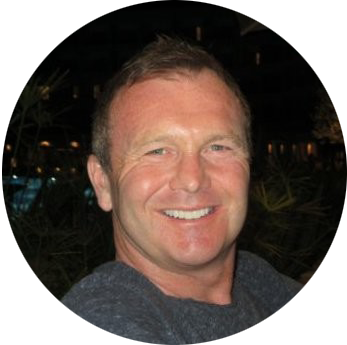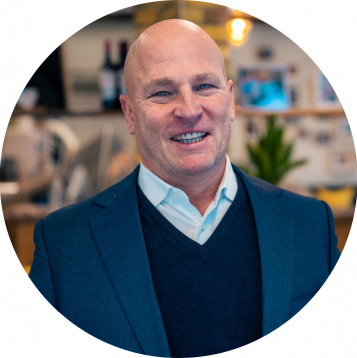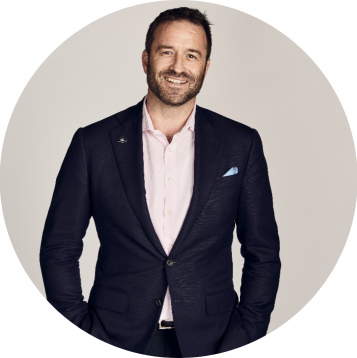Can you tell us a bit about what you do here at Sullivan & Stanley?
I am one of the Operating Partners here at S&S, working both client-side and internally. Throughout my career, I have led the delivery of change for organisations across multiple industries with the likes of Mastercard, Three and BCG. I specialise in strategy to execution, people and culture and being ChangeReady.
What is ChangeReady and why is it important?
We’re experiencing a business environment more volatile, complex and disruptive than in any previous time. Alongside this, the dehumanisation of work means organisations are losing their competitive advantage with disengaged workforces that are not adaptive, responsive and resilient to change. Organisations know that they need to embrace continual improvement to thrive, but most companies, even commercially profitable ones, struggle to deliver change successfully.
Forbes report that 84% of transformations fail and The Standish Group highlight that 53% of initiatives end up costing nearly double their initial budget. This disconnect costs UK businesses billions of pounds each year. The only way to be sure of success in a world where such an alarming proportion of transformations fail, is to have strong foundations in place. This allows organisations to navigate through the complexities of change and ultimately deliver sustainable value. We call these foundations the ChangeReady 6.
What are the six foundations of change?
Strategy: A clear direction, well understood by the whole organisation, and a steel thread through from the strategy to teams’ day to day work is a critical first step to being ChangeReady.
Leadership: Great leaders inspire their teams. They genuinely understand how to lead through change, they encourage continuous learning, empower people and create accountability for the change.
People: Engaged teams take ownership of change and nurture a cultural shift through the organisation, ultimately leading to a truly sustainable change.
Customer: When customers are at the heart of change it creates a strong relationship between them and the organisation, one based on trust and mutual respect. Change is co-created and ensures value is delivered for everyone.
Delivery: Teams experiment and learn within a flexible governance pattern. The focus is on supporting the fast and effective delivery of value.
Value: Organisations are set up to deliver sustainable benefits to customers regularly, at least every 90 days, and more frequently if possible.
We work with organisations (using an online company-wide assessments and immersion sessions with Executive Teams), to confirm how ChangeReady they are, and then develop and execute against a remediation plan to de-risk their change.
When working with an organisation, what’s the first thing you look for?
When people thrive, businesses thrive. However, engaging with an organisation’s purpose and journey is a voluntary and personal action – no one can force people to become engaged.
So, a clear vision is critical. When an organisation has a clear vision, people can start to connect with the business, with its purpose and engage with the journey ahead. Individual’s actions align with their core values and beliefs, they find the work meaningful and fulfilling. They are motivated to put effort into their work, knowing it will reap the rewards. They genuinely enjoy work and can appreciate the richness it gives their lives – this in turn ensures sustainable value for the business.
How do you best manage the people side of change?
Change involving people is complex, unpredictable and difficult to ‘manage’.
Change Management is key to the adoption of new and sustainable behaviours, processes and ways of working. Many traditional change management methodologies are reliant on a repeatable pattern. This works well when we know what the solution needs to be and exactly how to do it. Projects where we build things we have built before work well here. We can provide timelines, estimates and outputs with relative ease. This is called a deterministic approach.
However, when people need to be engaged in the change, where mindsets and behaviours need to be influenced, a deterministic approach doesn’t work.
At S&S, we use an emergent and flexible approach to change management and bring in techniques based on neuroscience, social engineering and behavioural science. This allows us to sense and adapt quickly. By adopting lean and agile approaches to the programme design, we can create an approach that is relevant for the complex nature of change and fully realise the investment of the change.
We always help people engage with the change and be part of it – and that makes for an exciting change journey for everyone.
If you’re interested in de-risking your change and finding out how ChangeReady you are, get in touch with Jacqueline today.



































































